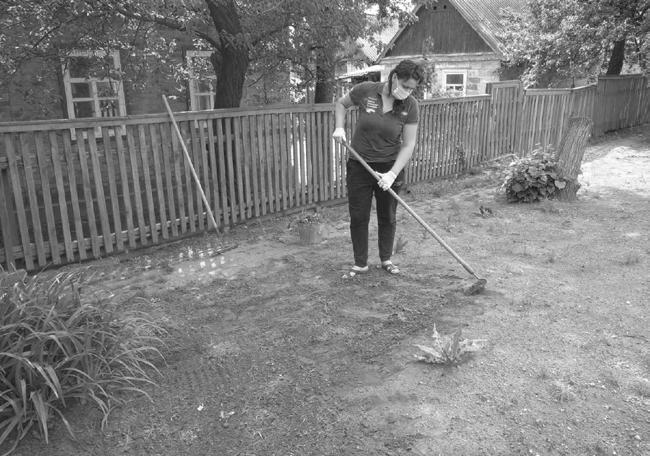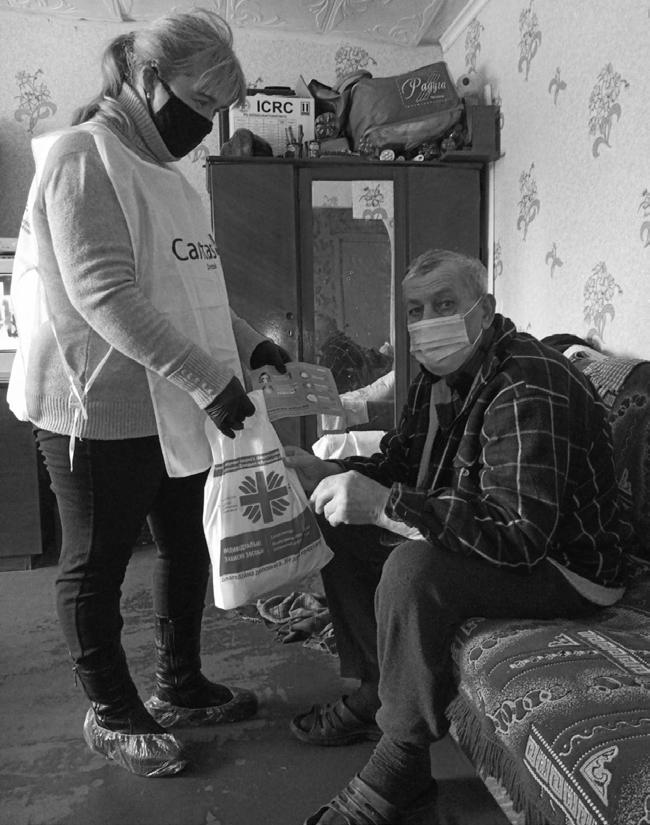BACKGROUND, PURPOSE AND OBJECTIVES In its seventh year, the armed conflict in Donetsk and Luhansk oblasts in eastern Ukraine continues to have a devastating effect on the 5,2 million people living in the conflict-affected areas. Considered a protracted humanitarian crisis, it leaves 3,4 million people in need of humanitarian assistance and protection, and 1,4 million internally displaced. Apart from the direct negative impact on physical and mental well-being, conflict-affected people face lack of access to basic lifesaving services due to disrupted community infrastructure, as well as food insecurity and widespread unemployment. Even though the security situation has improved since the latest ceasefire in July 2020, the humanitarian situation remains critical. In addition, Covid-19 pandemic further aggravates humanitarian needs, due to the large proportion of vulnerable people, poor healthcare and lack of adequate infrastructure for Covid-19 prevention. Even though the official number of Covid-19 infections in the conflict-affected areas is still relatively low — based also on the very limited capacity for tests — the virus and subsequent quarantine measures have already taken a significant toll on people’s health, well-being and livelihoods. Even under conservative estimations, absolute poverty is expected to rise from 27% to 44%. The situation is particularly grave for the elderly, people living in rural areas along the contact line, IDPs, people with specific needs as well as girls and women, who experience a 50% increased risk of gender-based violence (GBV) and financial difficulties. As women constitute the majority of healthcare and social workers, they also bear the brunt of fighting the Covid-19 pandemic — often under precarious conditions — and face higher risk of infection. With overlapping vulnerabilities and multiple needs, the protracted crisis in Ukraine requires a multisector approach that links the alleviation of immediate basic needs with measures that increase resilience and promote recovery. Caritas Ukraine believes that gender equality is essential to the success of any humanitarian aid program. Caritas Ukraine in collaboration with three local partner organizations is currently implementing the 1.5-year long project “Strengthening Health, Community Resilience and Livelihoods in Donetsk and Luhansk Oblasts”, funded by the Austrian Development Agency with funds from Austrian Development Cooperation and Caritas Austria. The project is implemented from November 2020 until May 2022 in collaboration with three local partner organisations working in Valuiske, Makarove, Vilhove, Zolote (Luhansk oblast), Novobakhmutivka, Novoselivka (Donetsk oblast) as well as in a number of settlements in non-government controlled areas (NGCA). The project aims to contribute to sustaining and safeguarding the lives of vulnerable populations and internally displaced Ukrainians in conflict-affected communities in Donetsk and Luhansk regions through sustainable recovery and resilience measures. The project outcomes are 1) to ensure that vulnerable conflict-affected people along the contact line in NGCA, especially female-headed households (FHH) and households (HH) with elderly people, are able to secure their basic needs and sustain their lives through the provision of winterization and hygiene assistance, and 2) to ensure that vulnerable conflict-affected HHs along the contact line in government-controlled areas (GCA), especially FHHs & HHs with elderly people, have improved their health and resilience amid Covid-19 and recovered their livelihoods towards increased sustainability through home-based
10








